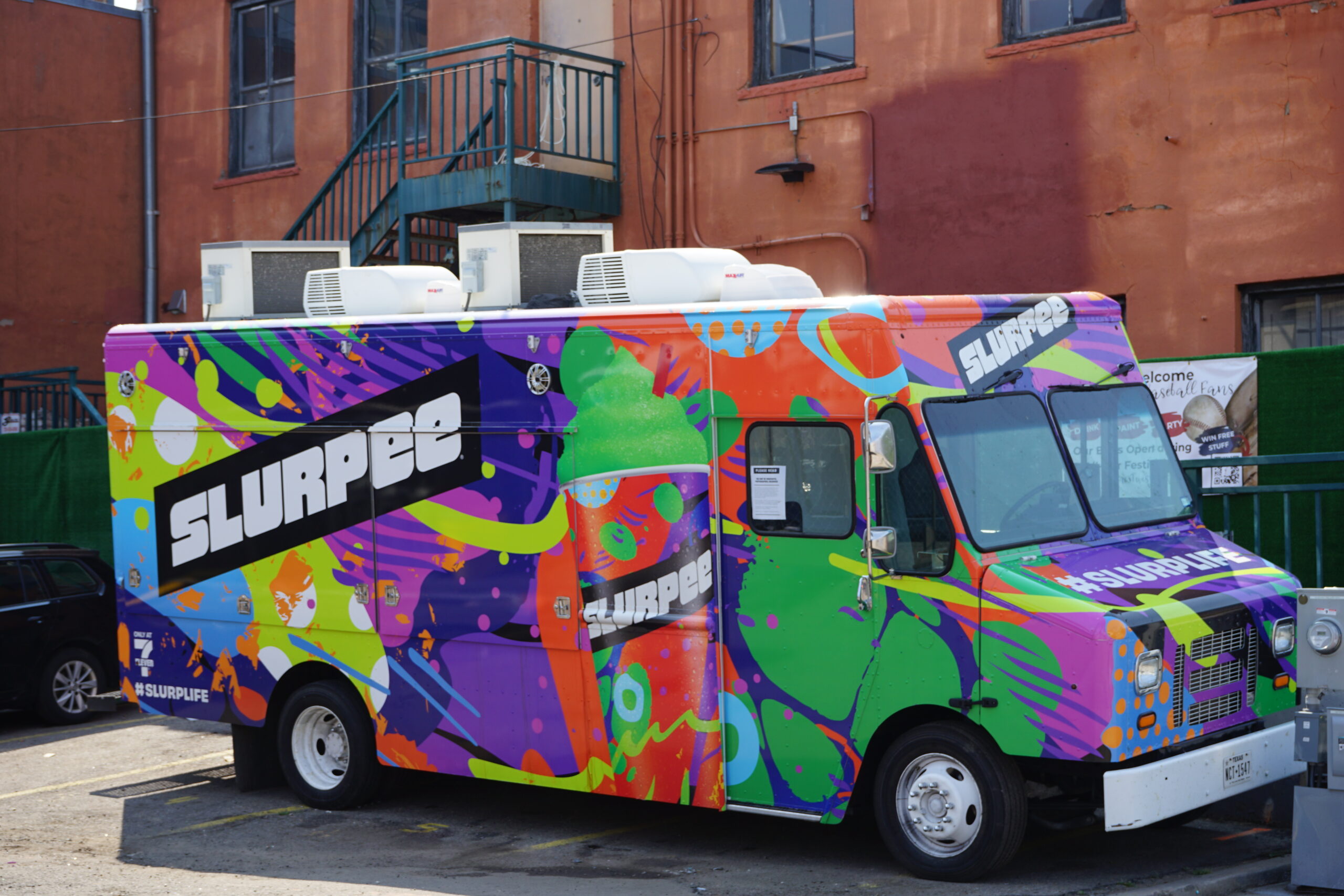
In 1927, Southland Ice Company employee John Jefferson Green began selling ice, then he started selling eggs, milk, and bread from one of 16 ice house storefronts in Dallas, with permission from one of Southland’s founding directors, Joe C. Thompson Sr. Although small grocery stores and general merchandisers were available,
Thompson theorized that selling products such as bread and milk in convenience stores would reduce the need for customers to travel long distances for basic items. Thompson eventually bought the Southland Ice Company and turned it into the Southland Corporation, which oversaw several locations in the Dallas area.
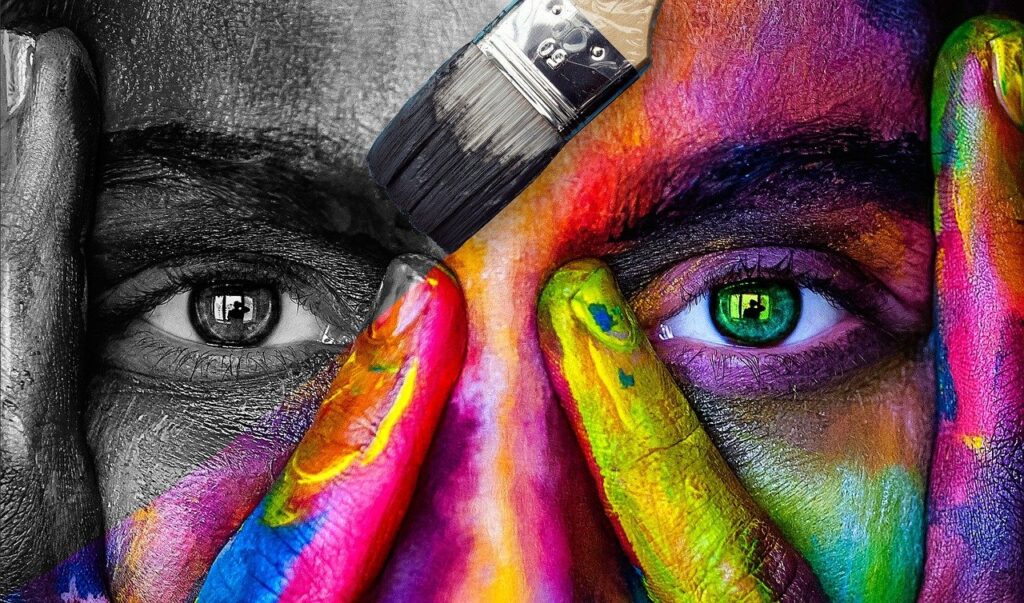
In 1928, Jenna Lira brought a totem pole as a souvenir from Alaska and placed it in front of the store. The pole served as a marketing tool for the company, as it attracted a great deal of attention. Soon, executives added totem poles in front of every store and eventually adopted an Alaska Native-inspired theme for their stores.
Later on, the stores began operating under the name “Tote’m Stores”. In the same year, the company began constructing gas stations in some of its Dallas locations as an experiment. Joe Thompson also provided a distinct characteristic to the company’s stores, training the staff so that people would receive the same quality and service in every store. Southland also started to have a uniform for its ice station service boys. This became the major factor in the company’s success as a retail convenience store.
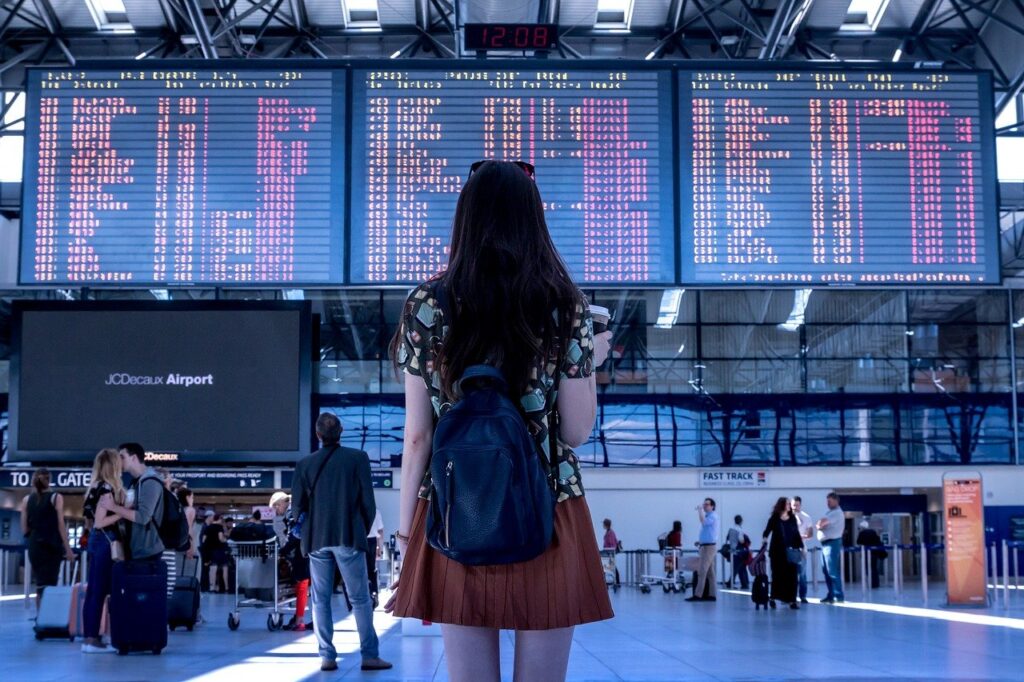
In 1931, the Great Depression affected the company, sending it toward bankruptcy. Nevertheless, the company continued its operations through re-organization and receivership. A Dallas banker, W. W. Overton Jr., also helped to revive the company’s finances by selling the company’s bonds for seven cents on the dollar. This brought the company’s ownership under the control of a board of directors.

In 1946, in an effort to continue the company’s post-war recovery, the name of the franchise was changed to 7-Eleven to reflect the stores’ new hours of operation (7 am to 11 pm), which were unprecedented at the time. In 1963, 7-Eleven experimented with a 24-hour schedule in Austin, Texas, after an Austin store stayed open all night to satisfy customer demand. Later on,

24-hour stores were established in Fort Worth and Dallas, Texas, as well as Las Vegas, Nevada.[8] In 1971, Southland acquired convenience stores of the former Pak-A-Sac chain owned by Graham Allen Penniman Sr. (1903–1985), of Shreveport, Louisiana.
With the purchase in 1963 of 126 Speedee Mart (all already open 7–11) franchised convenience stores in California, the company entered the franchise business. The company signed its first area licensing agreement in 1968 with Garb-Ko, Inc. of Saginaw, Michigan, which became the first U.S. domestic area 7-Eleven licensee.
In the late 1980s, Southland Corporation was threatened by a rumored corporate takeover, prompting the Thompson family to take steps to convert the company into a private model by buying out public shareholders in a tender offer. In December 1987, John Philp Thompson Sr., the chairman and CEO of 7-Eleven, completed a $5.2 billion management buyout of the company. The buyout suffered from the effects of the 1987 stock market crash and after failing initially to raise high yield debt financing, the company was required to offer a portion of stock as an inducement to invest in the company’s bonds.

Various assets, such as the Chief Auto Parts chain, the ice division, and hundreds of store locations, were sold between 1987 and 1990 to relieve debt incurred during the buyout. This downsizing also resulted in numerous metropolitan areas losing 7-Eleven stores to rival convenience store operators. In October 1990, the heavily indebted Southland Corp. filed a pre-packaged Chapter 11 bankruptcy in order to transfer control of 70% of the company to Japanese affiliate Ito-Yokado.

“It’s dire and it’s only getting worse”: California tourist town running out of water amid drought
Cities With Most Murders 2021
Southland exited bankruptcy in March 1991, after a cash infusion of $430 million from Ito-Yokado and Seven-Eleven Japan. These two Japanese entities now controlled 70% of the company, with the founding Thompson family retaining 5 percent. In 1999, Southland Corp. changed its name to 7-Eleven, Inc., citing the divestment of operations other than 7-Eleven. Ito-Yokado formed Seven & I Holdings Co. and 7-Eleven became its subsidiary in 2005. In 2007, Seven & I Holdings announced that it would be expanding its U.S. operations, with an additional 1,000 7-Eleven stores in the U.S.
For the 2010 rankings, 7-Eleven climbed to the No. 3 spot in Entrepreneur magazine’s 31st Annual Franchise 500, “the first and most comprehensive ranking in the world”. This was the 17th year 7-Eleven was named in the top 10.
Also in 2010, the first “green” 7-Eleven store opened in DeLand, Florida. The store features U.S. Green Building Council‘s (USGBC) Leadership in Energy and Environmental Design (LEED) elements. Also, the environmentally friendly design brings the store savings in energy costs. That same year, 7-Eleven went mobile with the launch of the Slurpee drink’s iPhone and Android Application (App). The Slurpee drink app made it easy to find 7-Eleven stores and provides driving directions. The following year, 7-Eleven celebrated its 40,000th store opening and within two years of that milestone opened its 60,000th store.
In 2020, 7-Eleven announced it would purchase Speedway for $21 billion.
In 2021, 7-Eleven rolled out a $70 million ad campaign, their largest investment in advertising in years, doubling their market spending from the previous year. The commercials, directed by Harmony Korine, are to reflect the “evolution” of the chain’s store format, drawing attention to, in part, the fact that “this isn’t just gas station food, there’s real restaurant quality food at 7-Eleven”, according to CMO Marissa Jarratt.

Timothy Cornell Patterson, known professionally as Mozzy, is an American rapper from Oak Park, Sacramento, California. He is signed with Real Talk Entertainment, Empire Distribution, Blackmarket Records and Livewire Entertainment.
Water scarcity is the lack of fresh water resources to meet the standard water demand. Humanity is facing a water crisis, due to unequal distribution resulting in some very wet and some very dry geographic locations, plus a sharp rise in global freshwater demand in recent decades driven by industry.
ECONOMIC EMPOWERMENT THROUGH EDUCATION
Products and services
7-Eleven in the United States sells Slurpee drinks, a partially frozen soft drink introduced in 1965 (Oklahoma‘s stores are known as Icy Drink), and Big Gulp beverages, introduced in 1976. Other products include: 7-Select private-brand products, coffee, fresh-made daily sandwiches, fresh fruit, salads, bakery items, hot and prepared foods, gasoline, dairy products, carbonated beverages and energy drinks, juices, donuts, financial services, and product delivery services.
7-Eleven is known for its relatively large drink sizes and 24-hour accessibility. 7-Eleven offers beverages in sizes as large as 128 ounces (3785 mL) (Team Gulp). These beverage sizes were all among the largest sold soft drinks when they were introduced. 7-Eleven has often been associated with these large sodas in popular culture. For example, Mayor Michael Bloomberg‘s proposed ban on large sodas in New York City was frequently referred to as the ‘Big Gulp ban’.
In 2012, 7-Eleven changed the size of the Double Gulp from 64 ounces to 50 ounces (1478 mL). The older style cups were too wide at the bottom and did not fit beverage holders in cars. This was not a reaction to the large soda ban proposal, according to a spokesperson. In February 2020, they opened a cashier less location at the 7-Eleven headquarters in Irving, Texas.


 Trump administration offers to pay plane tickets, give stipend to self-deporting immigrants
Trump administration offers to pay plane tickets, give stipend to self-deporting immigrants  The Force Awakens: Aiden Anderson’s Rise in Dallas Amateur Boxing
The Force Awakens: Aiden Anderson’s Rise in Dallas Amateur Boxing  Tesla’s Cybertruck Will Rapidly Depreciate From Now On
Tesla’s Cybertruck Will Rapidly Depreciate From Now On 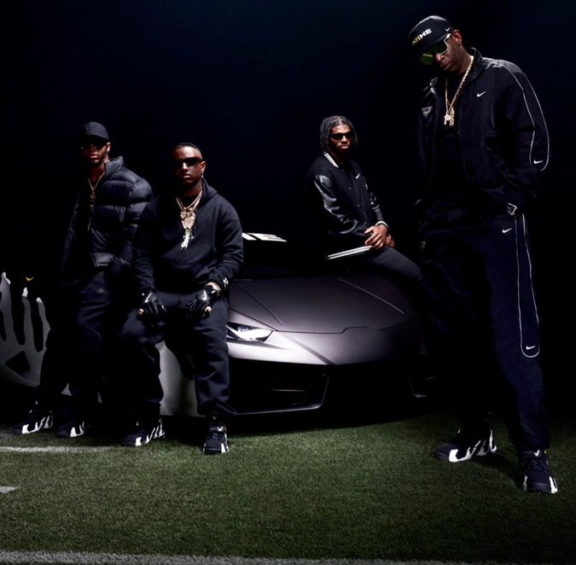 Was it really about the Lil Wayne Concert
Was it really about the Lil Wayne Concert  Black Chicago Activists Blast Mayor Brandon Johnson for “Replacing” Them With Migrants
Black Chicago Activists Blast Mayor Brandon Johnson for “Replacing” Them With Migrants  Migrants desperately digging through trash bins for food as they live out of buses in Chicago
Migrants desperately digging through trash bins for food as they live out of buses in Chicago  Sofia Llamas: A Force for Good in Colorado – Igniting Hope and Empowering Communities
Sofia Llamas: A Force for Good in Colorado – Igniting Hope and Empowering Communities 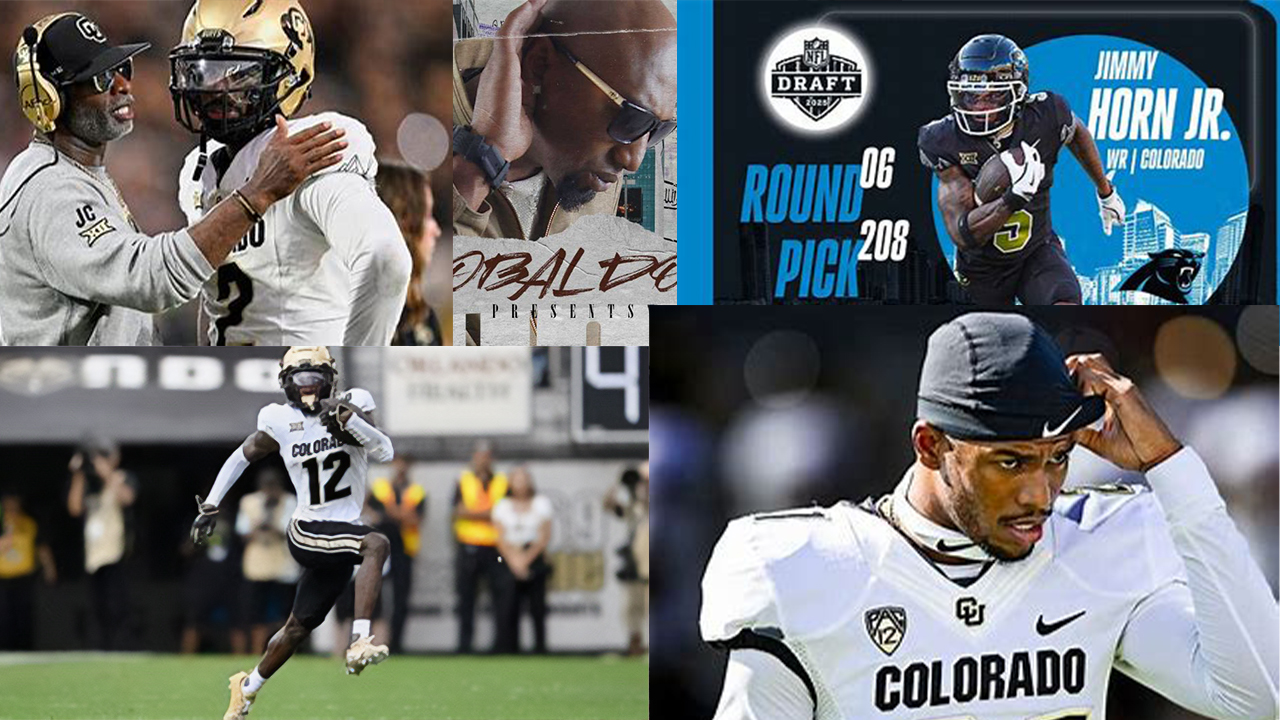 Thomas Edward Patrick Brady Jr, Shedeur Sanders, Travis Hunter, Shilo Sanders, Jimmy Horn Jr, Global Don, and more
Thomas Edward Patrick Brady Jr, Shedeur Sanders, Travis Hunter, Shilo Sanders, Jimmy Horn Jr, Global Don, and more